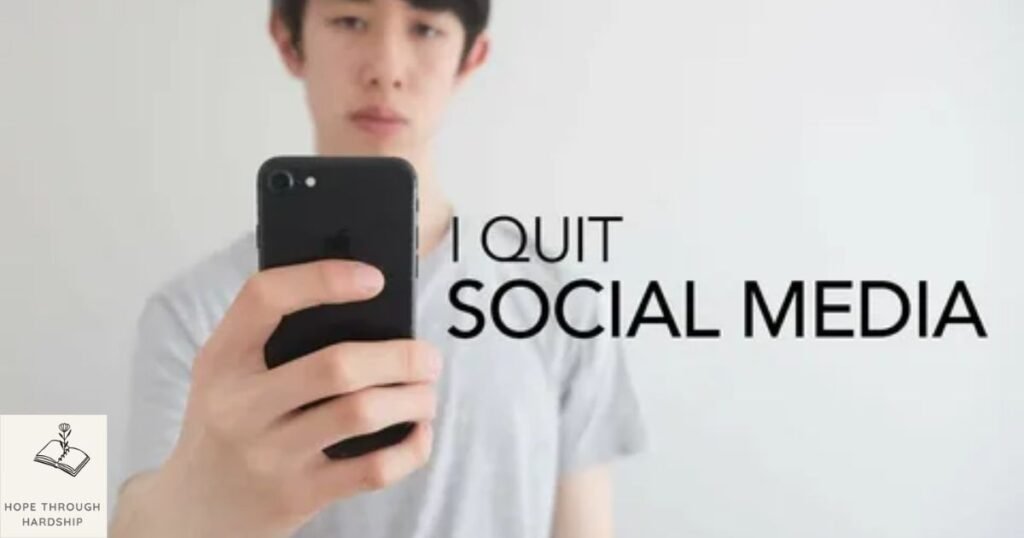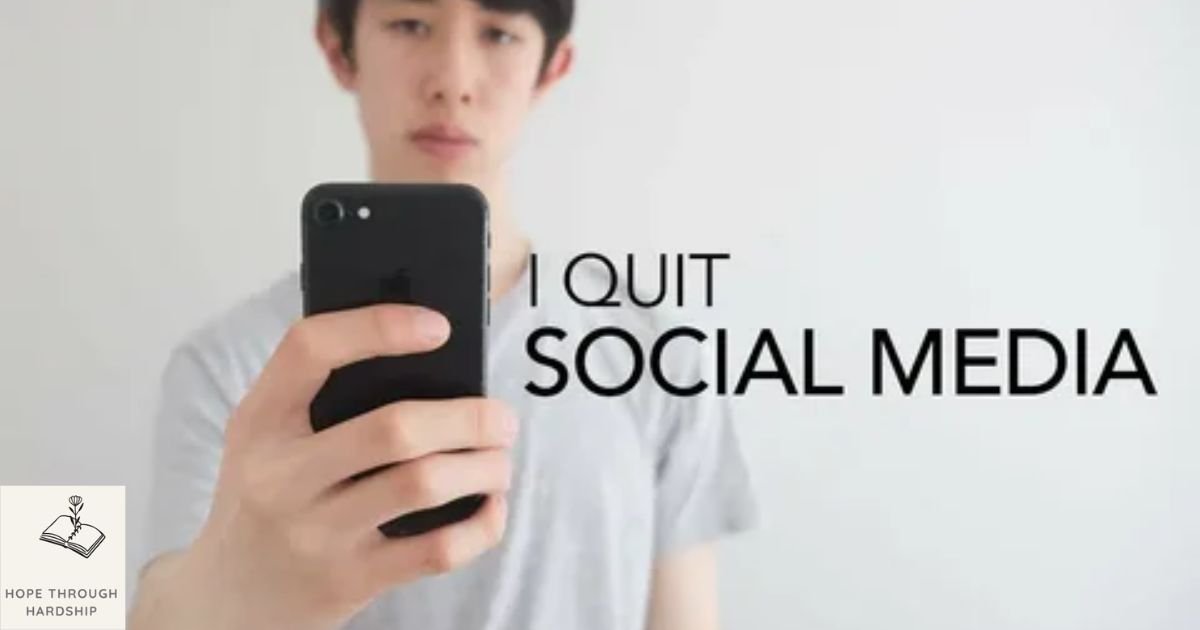The Hidden Cost of Constant Connection

Digital detoxification represents one of the most transformative decisions modern individuals can make for their mental, physical, and spiritual well-being. Sophisticated minds recognize that social media platforms exploit psychological vulnerabilities while masquerading as connection tools. Attention hijacking occurs systematically through algorithms designed to maximize engagement rather than enhance human flourishing.
Contemporary society witnesses unprecedented levels of anxiety, depression, and social fragmentation directly correlated with excessive social media consumption. You’ll discover that platforms engineer addictive behaviors through intermittent reinforcement schedules that mirror gambling mechanics. Consider how checking notifications triggers dopamine releases identical to those experienced by substance abusers seeking their next fix.
The Science Behind Social Media’s Destructive Impact
Research reveals that dopamine dysregulation from constant social media stimulation creates dependency patterns that undermine natural reward systems. Neuroscientific studies demonstrate that excessive platform usage literally rewires brain circuitry, diminishing capacity for sustained attention and deep thought. Neuroplasticity research indicates that digital overconsumption shrinks gray matter in regions responsible for emotional regulation and impulse control.
Strategic disconnection from these platforms allows neural pathways to regenerate while restoring natural attention spans and emotional stability. You’ll find that social media withdrawal initially feels uncomfortable because your brain has adapted to artificial stimulation patterns. However, this temporary discomfort precedes profound improvements in creativity, relationships, and overall life satisfaction.
Breaking Free from the Comparison Trap
Social comparison theory explains why scrolling through curated highlight reels inevitably generates feelings of inadequacy and dissatisfaction. Successful individuals understand that authentic fulfillment emerges from internal growth rather than external validation metrics. Consider implementing regular self-reflection practices to rebuild intrinsic motivation systems that social media systematically undermines.
20 Compelling Reasons to Quit Social Media
Mental Health and Well-being
Reason 1: Eliminate Constant Anxiety and FOMO Social media creates perpetual fear of missing out that keeps your nervous system in chronic stress mode. Notifications trigger fight-or-flight responses throughout the day, preventing deep relaxation. Quitting allows your mind to settle into the natural rhythms of calm and alertness.
Reason 2: Escape the Comparison Trap Scrolling through others’ highlight reels generates inevitable feelings of inadequacy and envy. These platforms showcase curated perfection that bears no resemblance to real life. Disconnecting removes this toxic comparison fuel while allowing authentic self-appreciation to flourish.
Reason 3: Reduce Depression and Mood Swings. Studies consistently link heavy social media usage with increased depression rates and emotional instability. Artificial dopamine hits from likes and comments create addiction cycles that leave you feeling empty. Natural mood regulation returns when you eliminate these artificial stimulation patterns.
Reason 4: Improve Sleep Quality and Patterns. Blue light exposure from screens disrupts circadian rhythms while stimulating content keeps minds racing at bedtime. Social media consumption before sleep correlates with insomnia and poor sleep quality. Quitting platforms naturally improves both sleep onset and depth.
Productivity and Focus
Reason 5: Reclaim Deep Work Capabilities Constant notifications fragment attention spans, making sustained concentration nearly impossible. Deep work requires uninterrupted focus periods that social media systematically destroys. Removing these distractions allows you to tackle complex projects with renewed mental clarity.
Reason 6: Stop Procrastination Patterns. Social media serves as the ultimate procrastination tool, offering endless distractions from important tasks. The average person checks platforms over 100 times daily, destroying productivity momentum. Eliminating these digital time-wasters forces engagement with meaningful activities.
Reason 7: Increase Creative Output Constant input from others’ content saturates your creative bandwidth, leaving little space for original ideas. Social media consumption replaces active creation with passive consumption. Disconnecting creates mental space where genuine creativity and innovation can flourish.
Reason 8: Enhance Professional Performance. Workplace social media usage correlates with decreased job performance and career advancement opportunities. Employers increasingly monitor digital habits when making promotion decisions. Quitting demonstrates self-discipline while improving focus on career-building activities.
Relationships and Social Connection
Reason 9: Develop Authentic Friendships. Digital connections often lack the depth and intimacy of face-to-face relationships. Social media encourages superficial interactions while diminishing the capacity for meaningful conversations. Real friendships require presence and vulnerability that platforms actively discourage.
Reason 10: Improve Family Relationships. Screen time during family interactions sends messages that digital content matters more than the present company. Children learn relationship patterns from observing parents’ attention allocation. Putting devices away demonstrates that family connections deserve undivided attention.
Reason 11: Reduce Social Anxiety. Constant online interaction can increase anxiety around face-to-face conversations. Social skills atrophy when replaced by digital communication shortcuts. Quitting forces the development of genuine interpersonal capabilities that build confidence.
Reason 12: Eliminate Toxic Relationship Patterns. Social media enables stalking ex-partners, engaging in arguments with strangers, and maintaining unhealthy connections. These platforms make it difficult to establish healthy boundaries with toxic individuals. Disconnecting forces investment in relationships that truly serve your growth.
Personal Growth and Self-Discovery
Reason 13: Discover Your Authentic Interests Algorithm-driven content shapes your interests based on engagement patterns rather than genuine preferences. You might not even know your true passions because they’ve been obscured by algorithmic manipulation. Quitting creates space to explore activities that genuinely excite you.
Reason 14: Develop Internal Validation Systems. Social media addiction stems from seeking external approval through likes, comments, and shares. This dependence on others’ opinions undermines self-confidence and authentic decision-making. Disconnecting forces the development of internal validation that remains stable regardless of others’ reactions.
Reason 15: Increase Self-Awareness Constant external stimulation prevents the quiet reflection necessary for self-understanding. Social media fills every spare moment with others’ thoughts, leaving no space for your own. Silence and solitude become possible when you eliminate digital noise.
Reason 16: Build Genuine Confidence. True confidence emerges from overcoming real challenges and developing actual skills. Social media offers artificial confidence boosts that disappear when the app closes. Quitting forces engagement with reality-based confidence-building activities.
Physical Health and Lifestyle
Reason 17: Reduce Physical Health Problems. Excessive screen time contributes to neck pain, eye strain, headaches, and repetitive stress injuries. The hunched posture required for phone usage creates long-term musculoskeletal problems. Quitting platforms naturally reduces screen exposure and associated physical ailments.
Reason 18: Increase Physical Activity. Social media consumption occurs during time that could be spent exercising, walking, or engaging in outdoor activities. Digital entertainment replaces active pursuits that benefit both physical and mental health. Removing these apps creates hours for movement and fresh air.
Reason 19: Improve Eating Habits. Mindless scrolling often accompanies mindless eating, contributing to weight gain and poor nutrition choices. Food photos on social media can trigger cravings and unhealthy comparisons with others’ dining experiences. Disconnecting supports mindful eating practices.
Reason 20: Reclaim Your Time The average person spends over three hours daily on social media platforms—that’s over 1,000 hours annually. This time could be invested in learning new skills, building relationships, or pursuing meaningful goals. Quitting returns precious hours to activities that improve your life.
Creating Your Social Media Exit Strategy
Gradual Disconnection Approach
Strategic platform elimination works more effectively than abrupt total disconnection for most individuals. Successful digital detoxers recommend starting with the most problematic platforms while maintaining necessary professional accounts. Withdrawal symptom management requires patience as your brain adapts to natural dopamine regulation patterns.
Replacing Digital Habits with Healthy Alternatives
Habit substitution strategies prevent relapse by filling the time previously spent scrolling with meaningful activities. Successful individuals replace social media consumption with reading, exercise, meditation, or skill development. Environmental design changes, such as removing apps and using website blockers, support long-term success.
Your liberation from social media dependency begins with recognizing that these platforms profit from your attention while contributing nothing meaningful to your growth or happiness. The temporary discomfort of disconnection pales in comparison to the lifelong benefits of reclaimed time, improved relationships, and authentic self-discovery that await on the other side.

